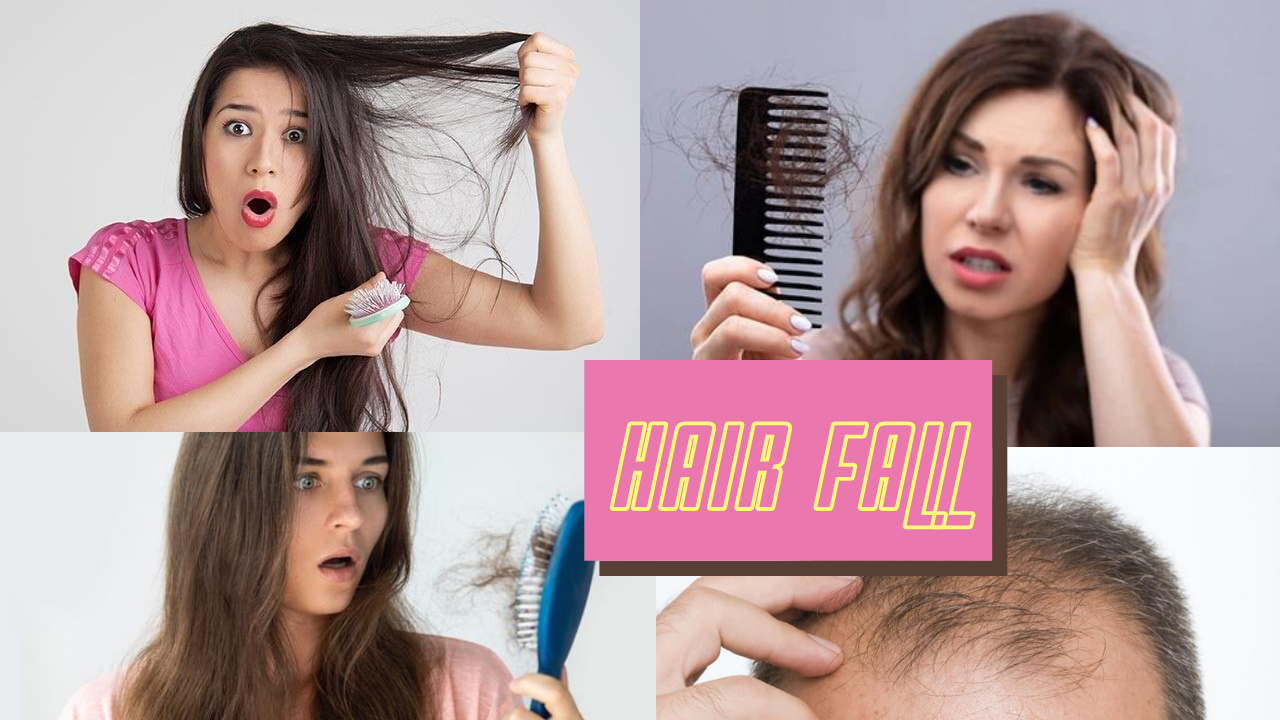Hair fall, its causes and treatment are non-ending topics for every kitty party. Hair fall is a very common problem nowadays. Every woman, man and some adolescent group also face these problems. The causes behind this are not clear but many treatments are available which are effective. Many times, you use household items as intake, apply some daily food items over your scalp and also try many hair oils. But after some time, you came to know that these all are not working. Day by day you are losing more hairs. Your hair getting thin and started greying very early. All these things increase your mental stress and again result in more hair loss.
At this time now, you are thinking of consultation with your skin specialist. Many times as the first line of treatment, skin specialists prescribe you biotin as a hair nutrition supplement. Hence you should know what is biotin.
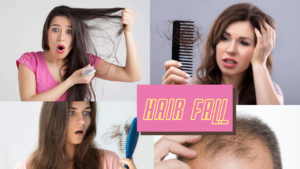
What is biotin
Biotin is a water-soluble vitamin which is known as vitamin be 7. Biotin plays a vital role in the nutrition and growth of skin, hair and nails. It stimulates the production of a protein known as keratin.
Keratin is the main protein that makes up your skin, nails and hair too. It is a fact that biotin improves your body’s keratin production and its quality.
It could not be stored for long in our bodies. Most of yours are from the foods you eat. To maintain an adequate level, it needs to be consumed. Although there is little evidence that biotin reduces hair loss, it remains a popular supplement for hair, skin, and nail growth.
“Biotin supplementation is helpful for people who are biotin-deficient, but biotin deficiency is quite rare.

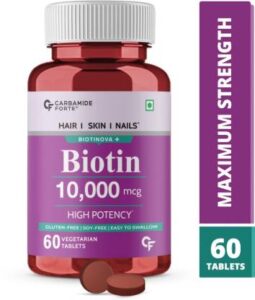
For good hair growth consumption of foods rich in healthy vitamins and minerals will help. The best natural sources of biotin are meat, eggs, fish, seeds, nuts, and vegetables. These will help your hair follicle by growing your keratin.
When your hair becomes stronger, it will be less prone to fall out. Adults should consume around 30 mcg of biotin per day, and women who are breastfeeding can increase their intake to 35 mcg/day. Along with these, you must take Vitamin E and omega 3 fatty acids also. These all with combined effect will improve your hair health.
Causes of hair fall
Hair loss in women is very common. It become more common nowadays in men also. Generally, humans shed between 50 and 100 single hairs per day. When shedding increases by 125 hairs per day, you should be conscious.
Hair shedding is a normal process. It is always replaced by the same number of hair follicle growth and maintains the balance of hair shed. When this balance disrupts hair loss happens.
1) Hairstyle:
Your hairstyle can cause hair loss when you arranged in ways that pull on your roots, like tight ponytails or braids. This type of hair loss is called traction alopecia.
2) Vitamin deficiency.
3) Dieting (rapid weight loss).
4)Restrictive diets.
5) Toxic substances, like chemotherapy, radiation therapy and some medications.
6) Extreme physical stress or shock to your body.
losing a lot of weight, surgery, anaemia, illness and having a baby.
7) Extreme emotional stress: mental illness, the death of a loved one, etc.
8) An abnormal thyroid hormone level.
9) Medications and supplements:
blood pressure medicines, gout medicines and high doses of Vitamin A.
10) Hormone changes caused by pregnancy, menopause or birth control pills.
11) Genes: Your family’s genes can cause thinning of the hair of your head.
12) Aging: Hormone changes as you age can cause balding.
13) Menopause: This type of hair loss often gets worse when estrogen is lost during menopause.
14) Autoimmune skin disease: That causes patchy hair loss on your head and possibly other places on your body is called Alopecia areata.
What are the signs of hair loss in women?
Seeing more hair fall out daily either on your brush, on the floor, in showers, on your pillows, or in the sink.
Seeing noticeable patches of thinner or missing hair, including a part on the top of your head that gets wider.
Seeing scalp skin through hair
Having smaller ponytails.
Seeing hair break off.
Test for hair loss
These are the tests performed to diagnose hair loss in both women and men.
1) Gently pull out your hair and see how many hairs come out.
2) Blood tests. Vitamin D, Vitamin B, Zinc, Iron, Thyroid profile and estrogen, progesterone and testosterone level.
3) Scalp examination under a microscope by the skin specialist.
4) Scalp biopsy if advised by the skin specialist. They remove and examine a very small piece of scalp skin.
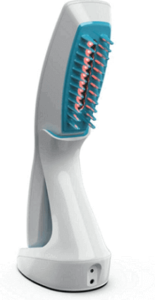
Treatments are available for your hair loss.
If you are losing your hair due to hormone changes like pregnancy, there might be no treatment needed. The hair loss will stop after some time.
If you observe that your hair loss is due to hairstyling, like tight braids or ponytails or certain chemicals treatment, then stop all these practices to stop hair loss.
If it is due to nutritional deficiencies, you must take supplements of nutrition like multivitamins and 3-5 milligrams of biotin daily. Biotin is the main vitamin for hair loss problems.
If despite all, your hair fall has not stopped, you can use Minoxidil, a pharmaceutical preparation available in the pharmacy. The 2% or 5% solution can be purchased from the pharmacy. Don’t use this product if you’re pregnant, if you plan to get pregnant, or if you’re breastfeeding.
Other treatments include laser treatment like the HairMax Lasercomb®. It is a low light laser is approved by the US FDA to treat hair loss.
Another FDA-approved laser product is the laser enable helmet and cap. These are low light laser helmets and caps.
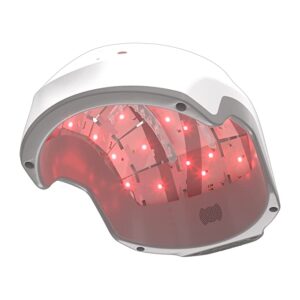
Other medications
May be used for hair loss in women include:
- Spironolactone and other anti-androgen drugs.
- Finasteride and other alpha-reductase enzyme inhibitors.
- Estrogens.
- Prostaglandin analogues.
- Steroids.
- Hair transplant surgery is another option.
- Injections of protein-rich plasma (PRP) have also been done to encourage hair growth. PRP is generally made from blood drawn from a patient. The platelets are removed and concentrated and then added back to the blood for injection.
- Microneedling of the scalp with derma roller.
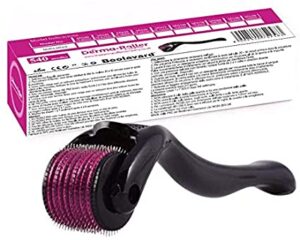
To summarise, many treatments are available for hair loss. But every therapy has some different effects on different types of scalps. Hence you should use it judiciously with the consultation of the skin specialist.
Some are the things you can try yourself are.
Colouring your hair can add volume to the strands, making your hair seem fuller.
When you are in the bathroom, always Massage your head while washing your hair. This can stimulate blood flow to the scalp and hair follicles.
Using the right kind of shampoo according to the nature of your hair can also help.
visit a dermatologist as soon as possible when you notice hair loss.

